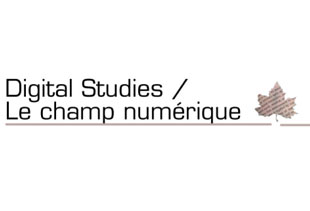John Bonnett and Kevin Kee, “Transitions: A Prologue, Program and Preview for Digital Humanities Research in Canada (Introduction to edited collection),” Digital Studies: 1:2 (2009).
It is a truism in the digital humanities, a constant one, and a good one, that it is always in a state of transition. Such an observation is not surprising since the instrument upon which it relies – the computer – is itself in a state of flux. For the moment, its computational power remains firmly in the grip of Moore’s Law, exponentially increasing its computational power as the decades pass. Scholars, whether they want it or not, are constantly being presented with new paradigms of computing — be it cloud computing, ubiquitous computing, or high performance computing — and new tools and markup schemes to express, treat and analyze content. In any publication devoted to the digital humanities, then, it would seem superfluous to mention that change is our constant condition and our constant preoccupation, a trite observation best left unsaid. We sympathize with this view. But when it comes to describing digital humanities scholarship generally, and computationally supported scholarship in Canada particularly, we think it is wrong. In Canada and abroad, a number of important developments have recently emerged that will impinge on the practice and future trajectory of our inter-discipline. They are new, important, and are reflected in the contributions to this issue. They are of sufficient moment and frequency that we feel justified in rendering this issue of Digital Studies with the thematic stamp it now bears: that of transition.
View Article
